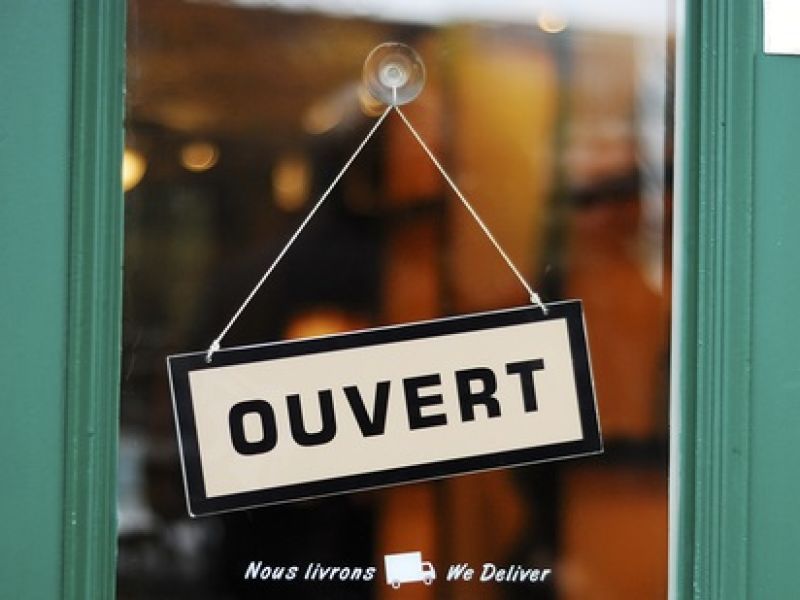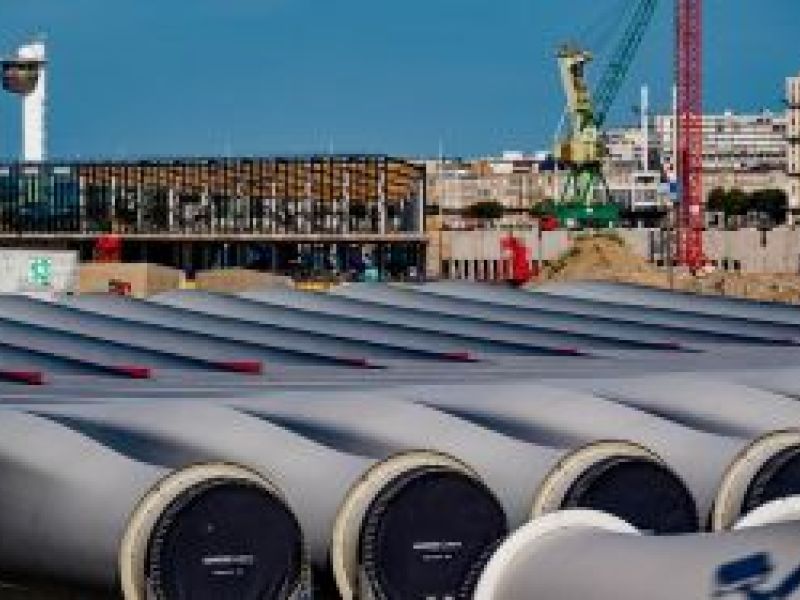Despite Coronavirus and the fact that turnout was down by over 10%, France’s recent local elections could still mark a seismic shift for France. The two rounds of elections have seen a wave of support for the green party Europe Ecologie Les Verts (EELV) and other eco-candidates, turfing out many mayors from Emmanuel Macron’s La République en Marche.
Could this be a reflection of the way lockdown has chimed with public sentiment on the climate - and could a new green agenda be good news for cleantech businesses in France?
Macron time
Local or ‘municipal’ elections in France take place every six years and allow any French residents with EU citizenship to elect local councillors and city mayors. In 2020, this has fallen roughly halfway through the term of President Emmanuel Macron.
While some of his party’s policies have been well received by the business community, he has faced opposition from major unions, and has been embroiled in several scandals - most recently the shutdown of the French football leagues.
If these elections were something of a referendum on his party’s popularity, Macron ought to be worried. While the majority of local candidates do not stand for any party, officials from Macron’s party only received 1.67% of the vote - a proportion equal to or less than seven other parties. EELV, who were only founded in 2010 from the remnants of previous parties, were one of the biggest winners from the second round, taking seven cities including Lyon and Bordeaux.
Related article: Start A Business In France in 8 Steps
It’s true that La République en Marche didn’t field many candidates at the local level, making this result slightly unrepresentative. However, the rise of the greens and swings in those cities do represent a significant shift. While the candidate in Lyon deposed a former Socialist mayor, Bordeaux is a long-time centre-right stronghold. The greens also performed well in last year's European elections, gaining seven new seats and almost 15% of votes.
Green machine
France has something of a reputation for left-wing politics - Communist Party candidates still perform well - so you might expect that climate policy would have been a strong point for the country. Indeed, think of recent climate policies and you’ll probably think of the Paris Agreement, a mutual agreement between multiple countries to lower their carbon emissions. The government has set an ambitious target of net neutral emissions by 2050, while Paris was also among the first cities to pledge a total ban on combustion cars, with a target of 2030.
While its targets are among the most ambitious in the world, the difficulty of meeting them have become plain over the past few years. As the UK accelerates towards its own 2050 pledge, France has fallen behind, failing to hit targets in the agriculture, energy and waste sectors. Transport has been so far slow to modernise, with a planned law to hike fuel costs being shelved after protests from rural areas, where transport options are limited. 2018 also saw the resignation of Macron's environment minister, Nicholas Hulot, who felt that the government was not acting quickly enough.
Related article: How to start a cleantech business in France
While France is a major proponent of nuclear energy - which is clean, if controversial - this hasn’t been enough to elevate its contribution to the Paris Agreement. Part of France's climate pledge has been to reduce its reliance on nuclear energy from around 75% to 50% in favour of other energy sources. Unfortunately, this has been hampered by sticklers for natural beauty, who have taken against both onshore and offshore turbines across the country - preventing France from capitalising on clean energy in the same way as the UK.
Pandemic legacy
While this year has been beset by negativity, one of the most positive effects of the pandemic has been the effect on the environment. The complete shutdown of transport infrastructure across the world has been a boon for wildlife, with animals reclaiming areas normally frequented by tourists. The lack of vehicles has also had a positive impact on air quality, and the grounding of flights in particular has massively reduced emissions.
The speed of this change has highlighted how quickly things could improve if drastic action was taken - and shown that such changes are possible. While local officials and mayors can’t steer France’s overall climate strategy, they can boost efforts in their local areas. While the most obvious measures are things like Paris’ push for electric cars or congestion charges, there’s an alternate avenue to consider: that of boosting climate-conscious businesses.
Related article: What are the benefits of starting a business in France?
As well as measures to encourage local people and businesses to be climate conscious (e.g. recycling schemes, cycle paths or bike vouchers), there is also an opportunity to capitalise on an existing strength: the French startup ecosystem. By cultivating eco-friendly talent and providing incentives to start eco tech businesses, France’s new wave of green mayors and councillors could kick-start an eco revolution without waiting for Emmanuel Macron.
Green shoots
One significant growth area is ‘cleantech’, or tech based around the generation of clean energy. This includes ways to generate energy more cleanly and efficiently, but it also encompasses things like better batteries to store energy. (See our article about a group of young startup science entrepreneurs who are taking the world by storm with their energy storing devices.) Battery tech is seen as pivotal to a ‘smarter grid’, which can borrow power when it needs it from a variety of sources. This could include taking power from your car as it sits in your garage, or from large industrial batteries in storage farms.
France already has a major stake in cleantech, and is arguably the main hub for tech entrepreneurs in Europe. The country now consistently sends the largest foreign delegation to the Consumer Electronics Show, and has a thriving network of tech hubs across the country, benefitting from seed funding and government support. The jewel in this crown is undoubtedly Paris: not just a great place to live, but home to many of the country’s biggest tech firms, and the famous Station F startup campus.
Related article: How Station F Shrugged Off France’s Bad Business Reputation
Green businesses already calling the capital home include electric scooter startup Cityscoot, carpooling app BlaBlaCar and Ynsect, a firm looking to make insects a more palatable dish for humans and farm animals alike. Paris has also hosted the EcoSummit conference twice in 2016 and 2018, providing a platform for green businesses. Organisations like French Cleantech meanwhile showcase the talents of over 300 cleantech businesses, connecting talent and providing business development advice.
France has never struggled for talent or entrepreneurial spirit, but the main barrier to these businesses has always been investment. While this is already changing, the appointment of green politicians could be the push that green startups need to accelerate past rivals in the UK or Germany. By creating incentives and schemes for green businesses, and incentivising the things that those businesses deliver - such as electric scooters, bike schemes or energy efficiency - France could create an environment that fosters talent and funding.
There can be no certainties about the precise effect that more green councillors and mayors will have, or whether the push for greener politics will be sustained. But as France recovers from the financial impact of COVID, pushing its already strong startup ecosystem towards green businesses could be a masterstroke. Whatever incentives or schemes are implemented, France is already a great place for startups - and a more receptive home for cleantech companies.
If you want to open a cleantech business in France, there is a free guide to starting your business in France which can be downloaded below this article. And our network of contacts can help you to start your business in France from company formation, to opening a business bank account in France, finding English-speaking French accountants that can help with specialist tax advice, finding a registered address in France for your business and we can also help you with VAT services and online payment processing. So feel free to reach out to us by calling us on 0033 (0) 1 53 57 49 10 or email us via our contact page or download the guides below.







